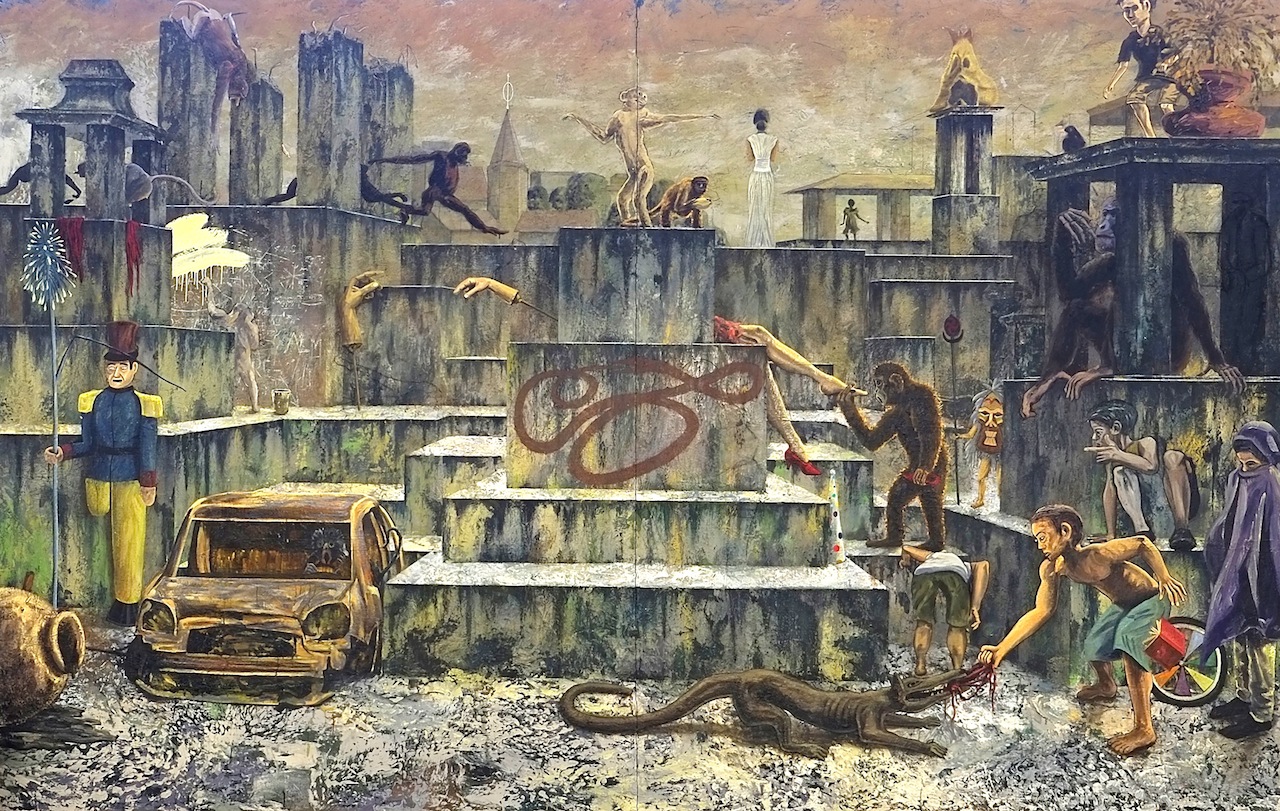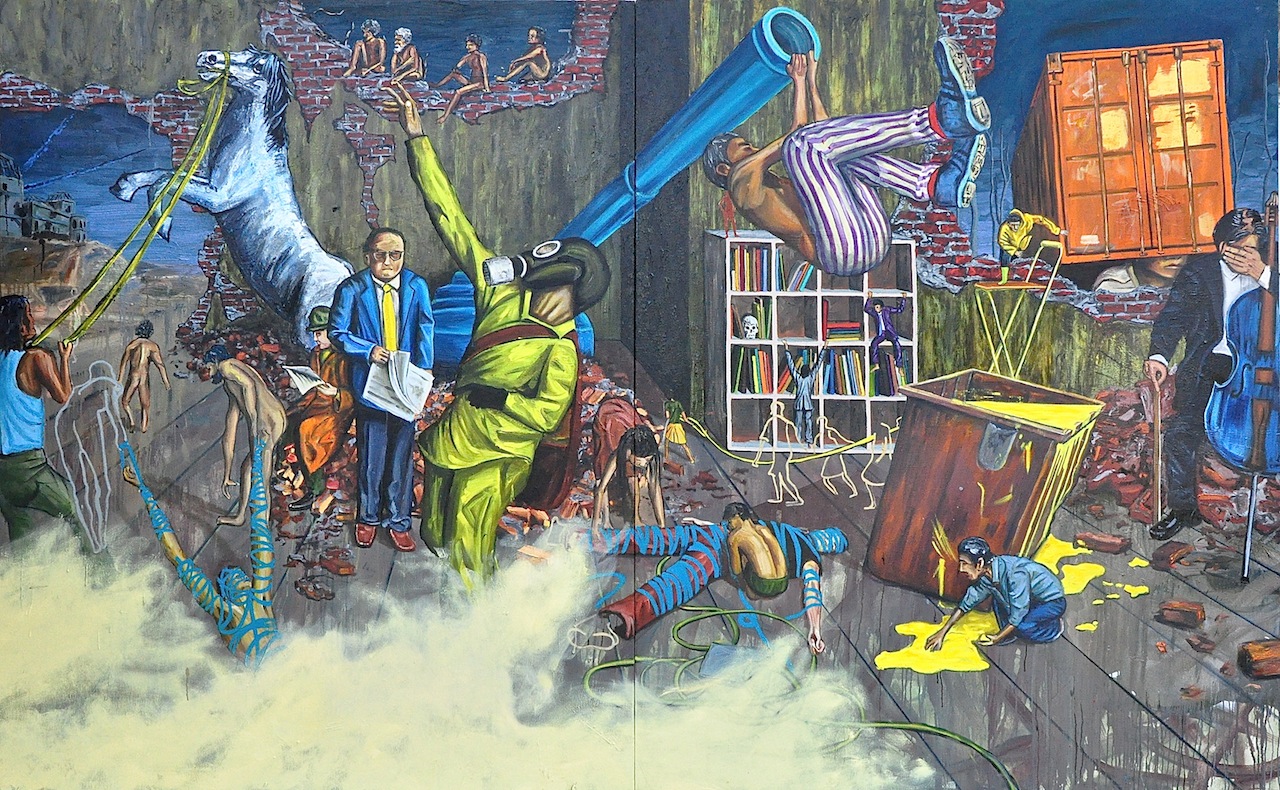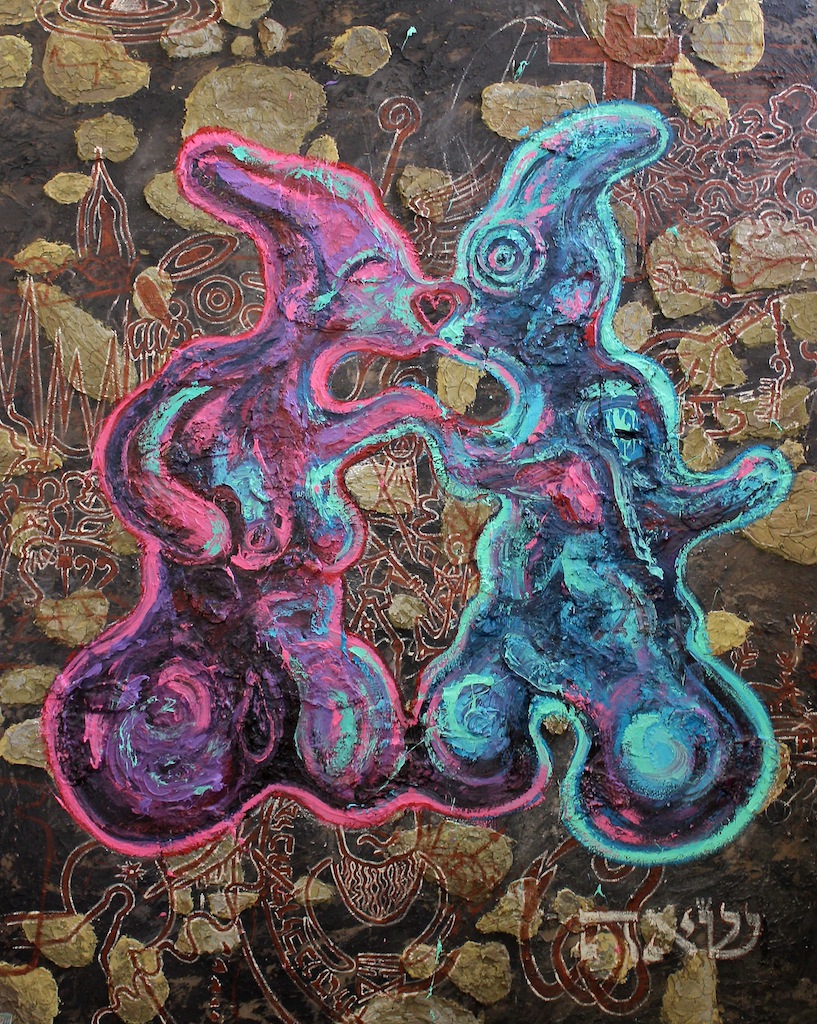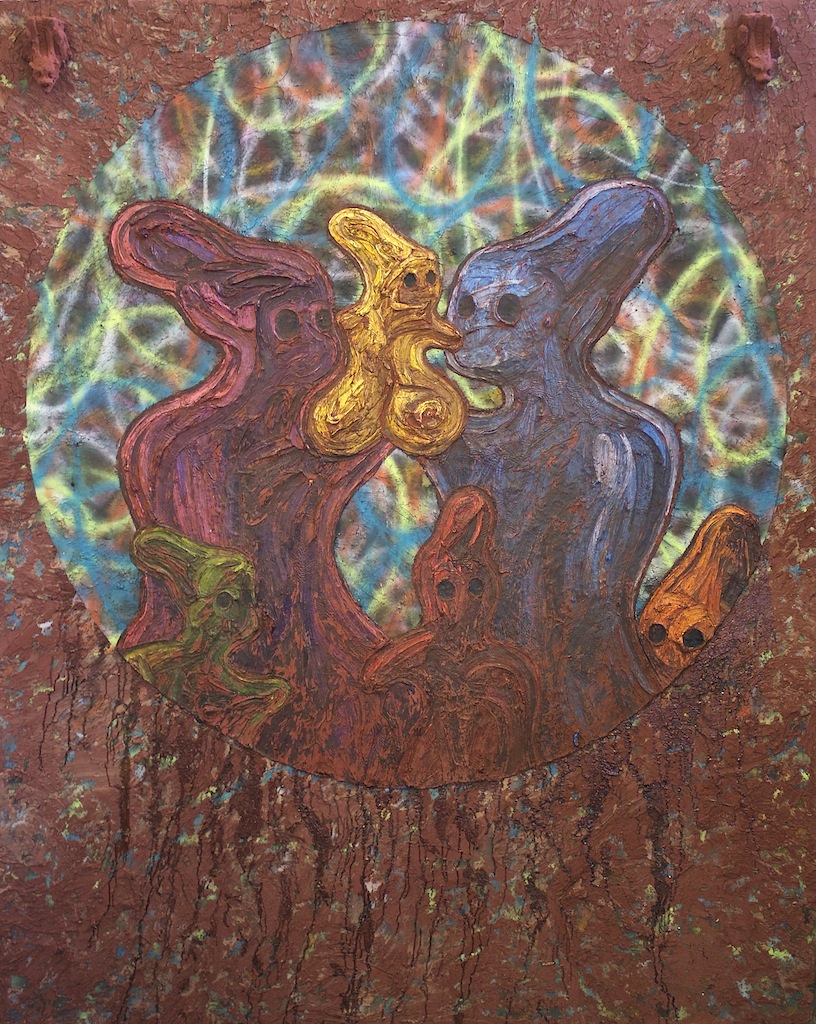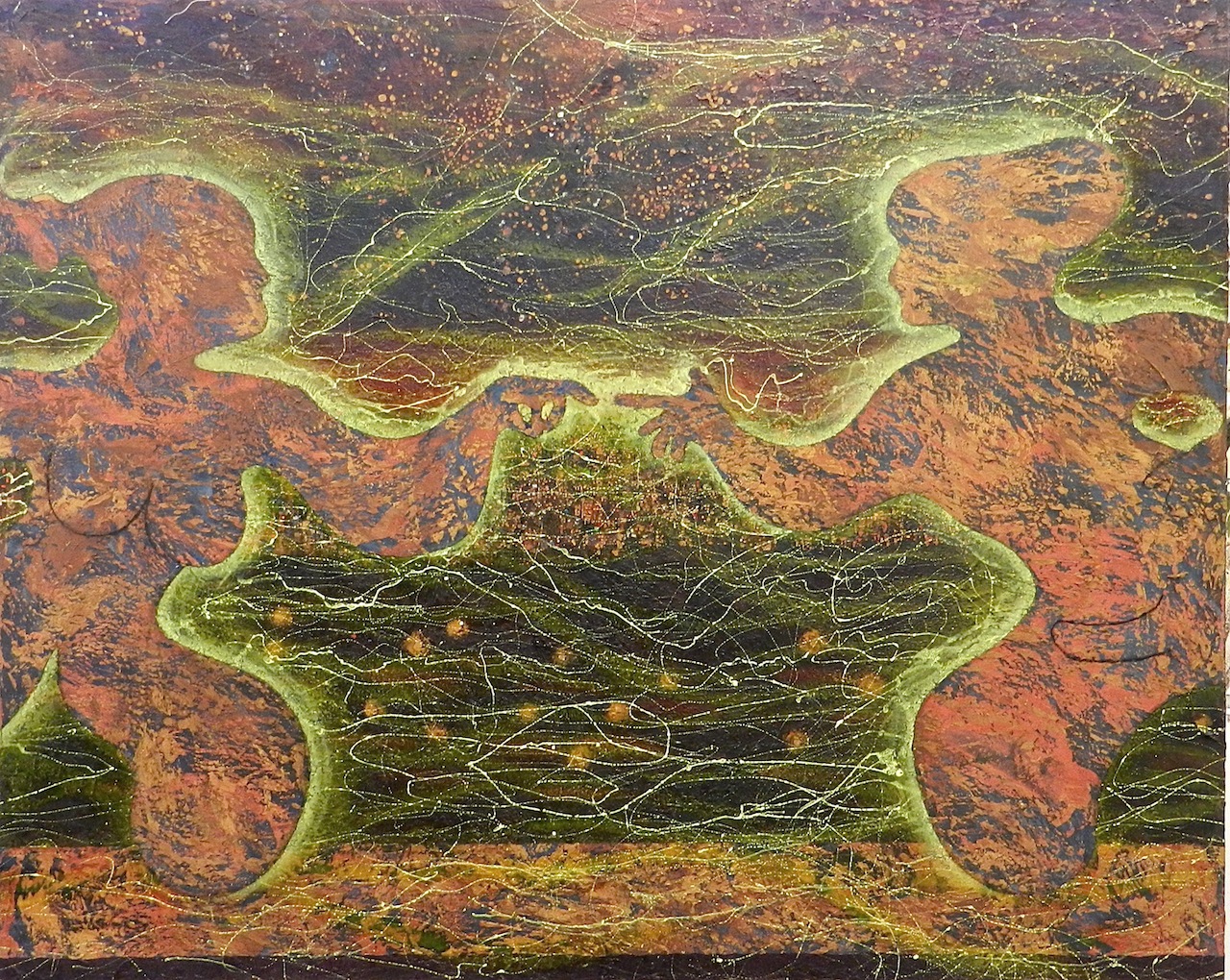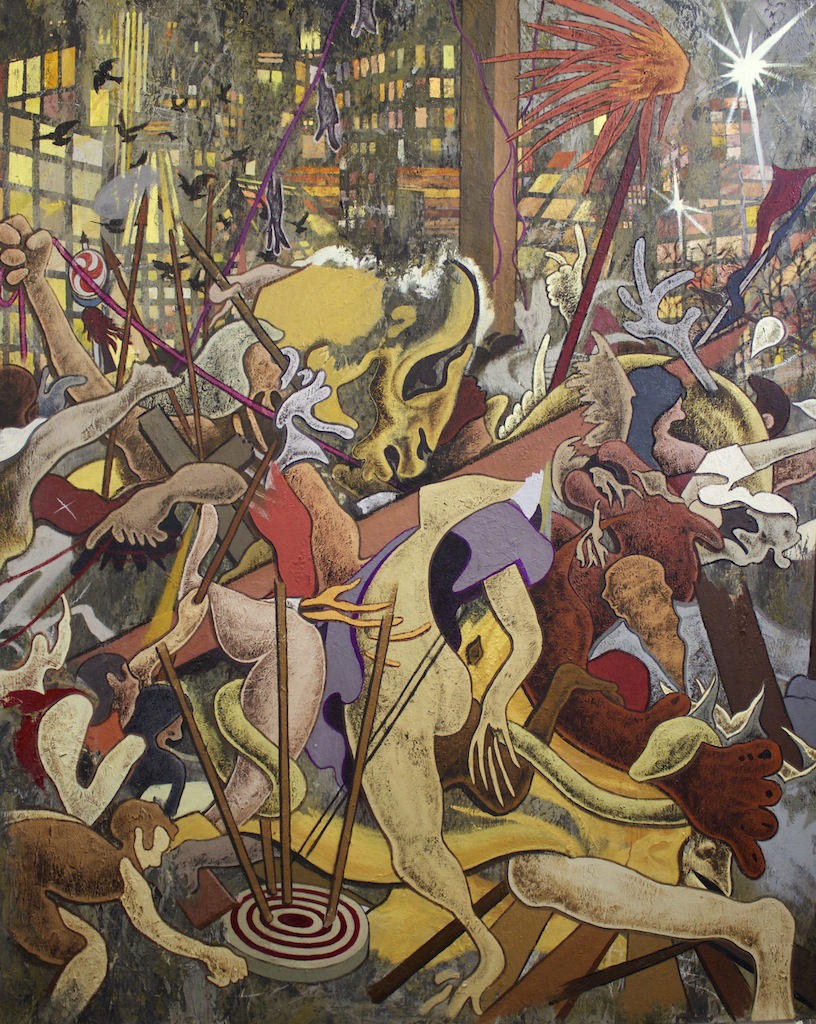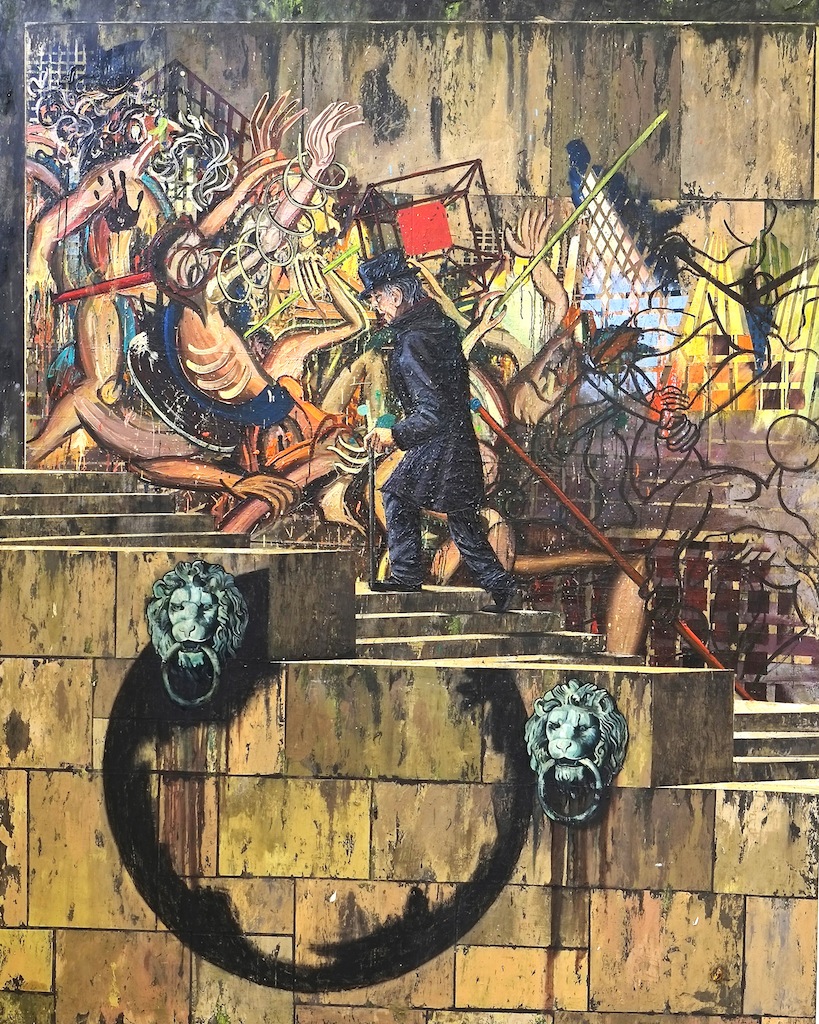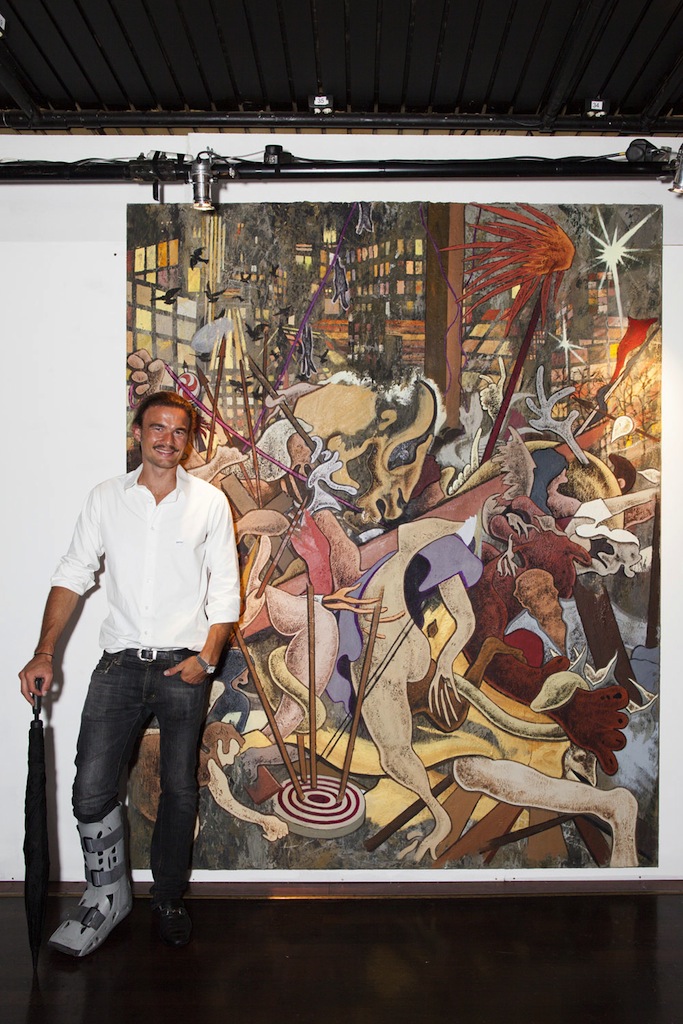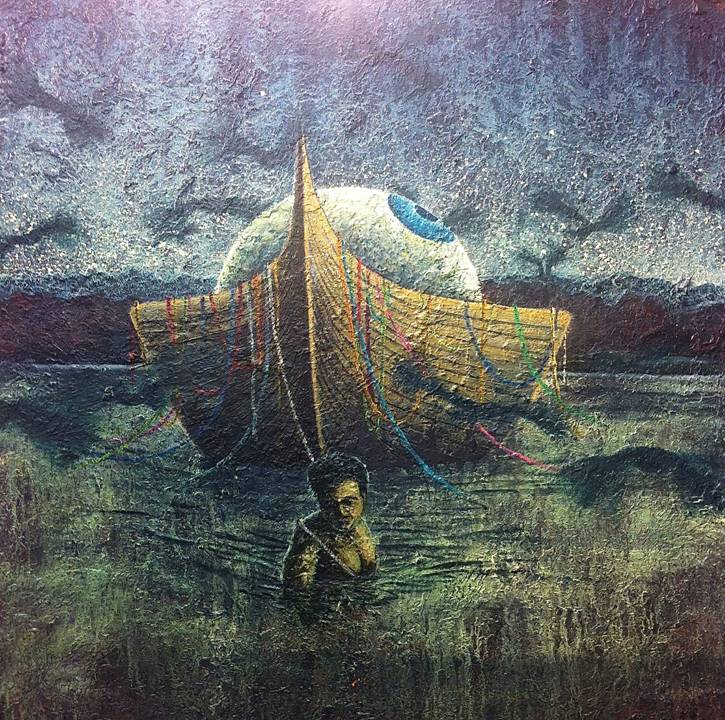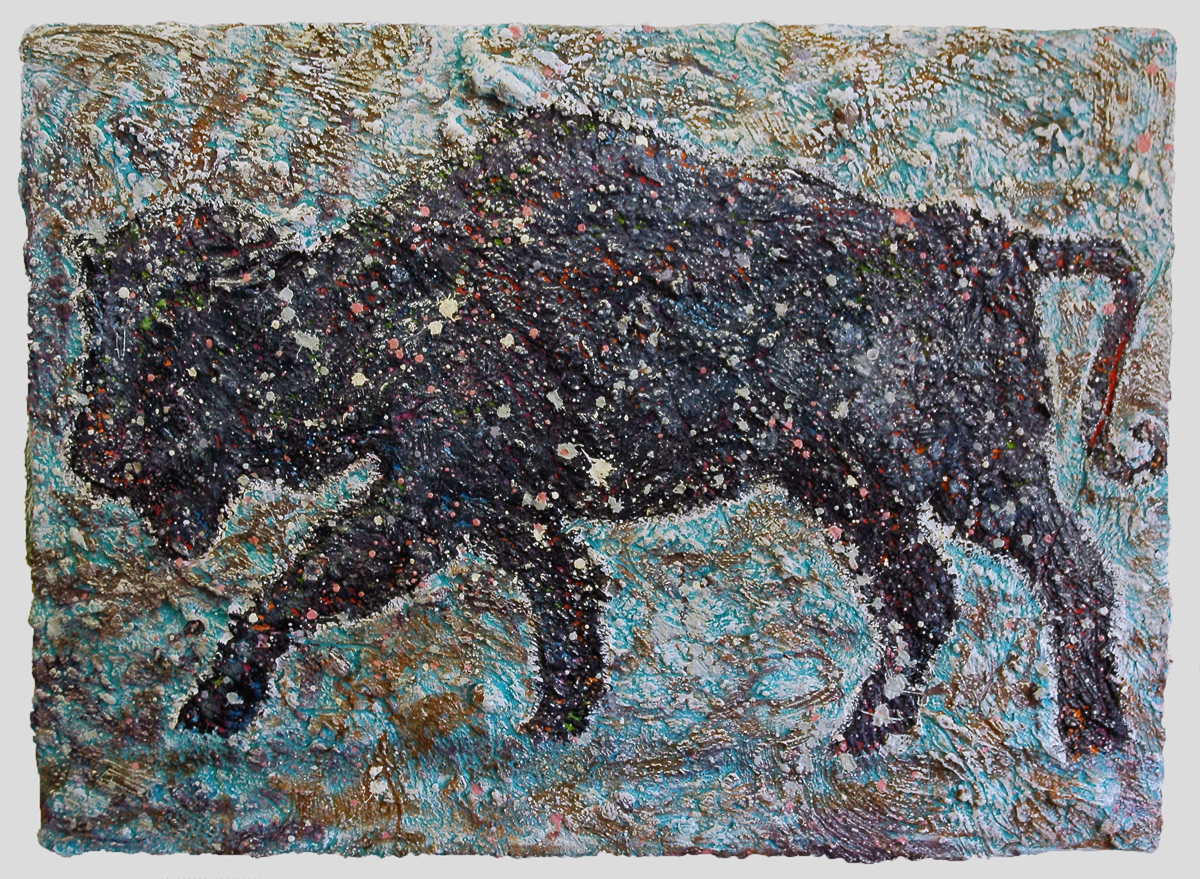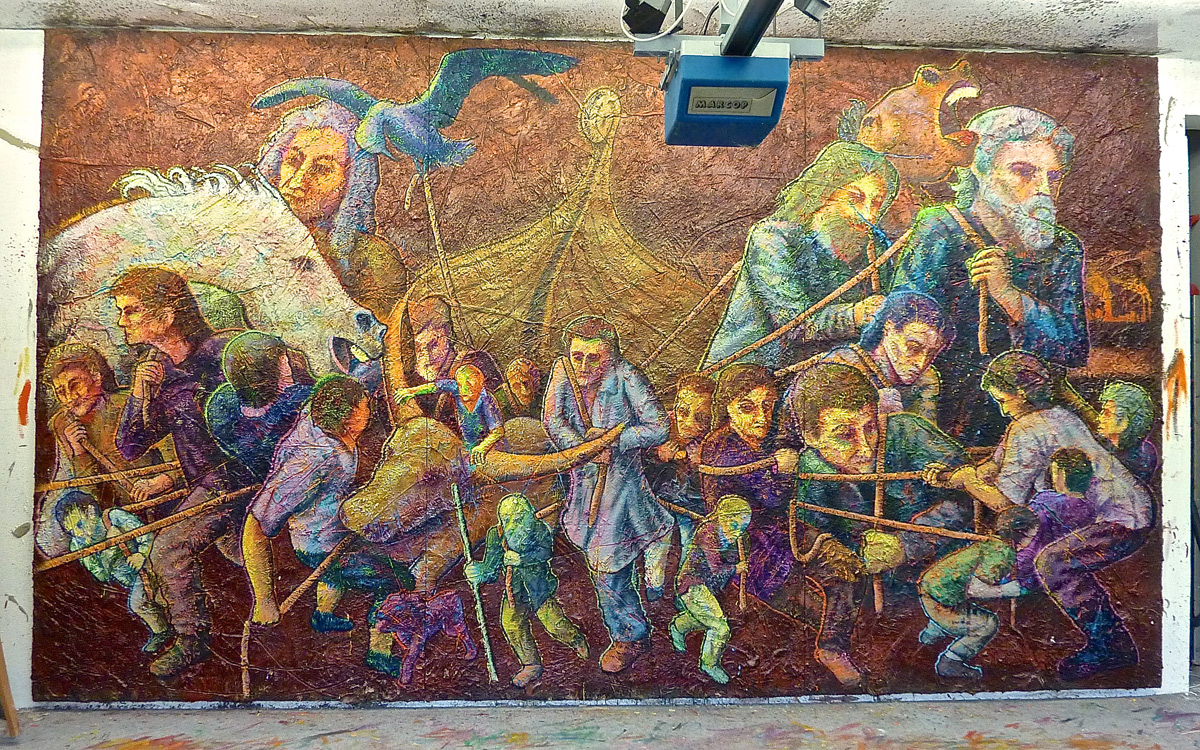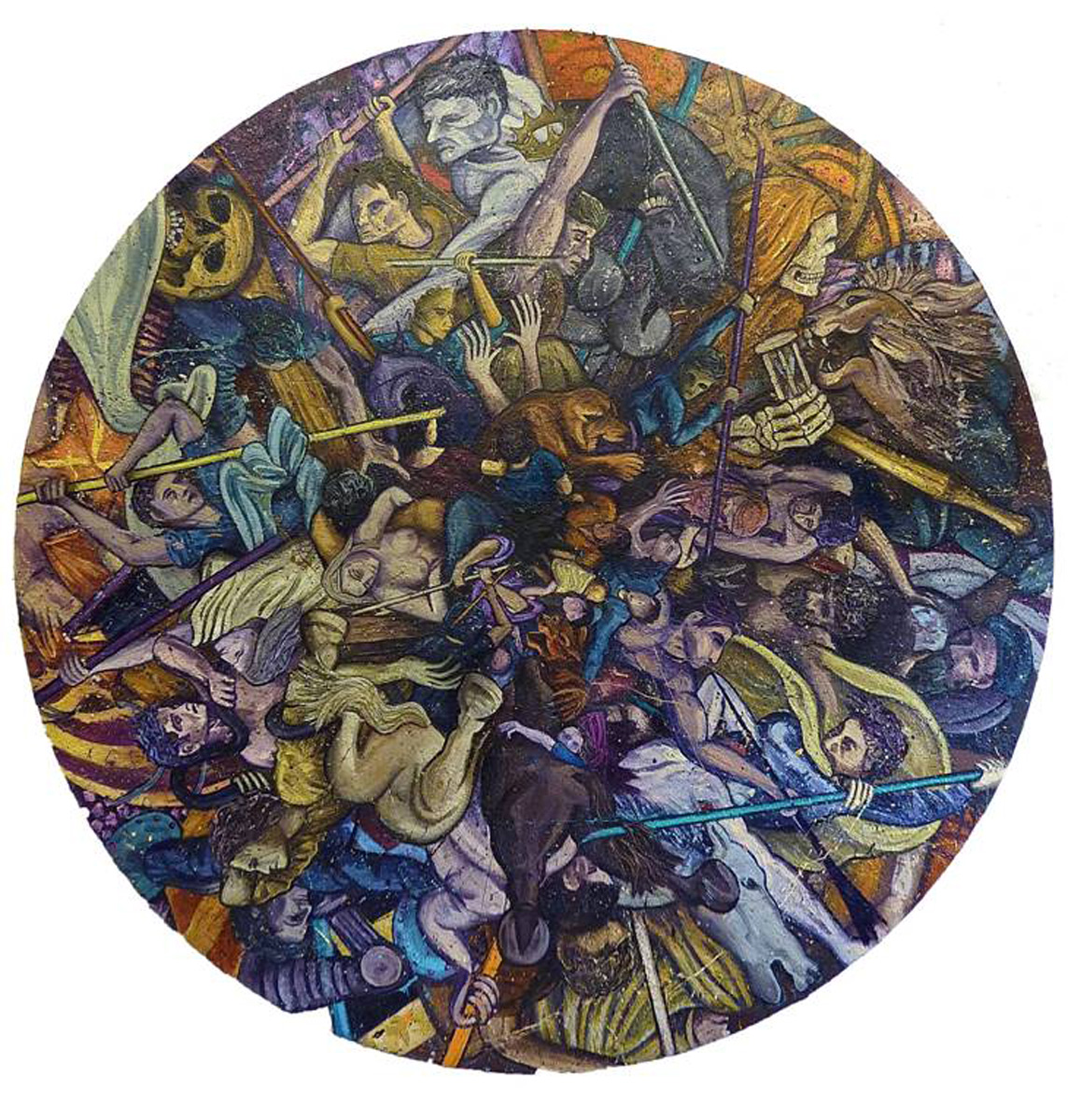Julian Tschollar – painter
My international upbringing has led me to search for a visual language that has the potential to grow in a hybrid space between cultural identities and communicate across cultural differences.
Throughout my art education I have experimented with figurative modes of painting and actively engaged with European and Eastern traditions in figurative art, philosophy and spiritualism. My faith in the potential of the figurative tradition within a modern context stems from my conviction that the expressive subjects of the past must necessarily be incorporated into visualisations of the present if art is to retain elements of our cultural, historical and spiritual heritage.
My desire to create images whose visual impact lies in their narrative potential and in the experience of illusion has led me to use the human figure as the substrate for my paintings and has resulted in a process of figural play. So far, my work has aimed to investigate the possibilities hidden amidst the junctures of materials, formal structures, and different approaches to figuration.
To support my practice I have engaged extensively with theories on the origins of cultural identity, symbolic systems, theological knowledge, which Aristotle described as ‘knowledge of things that have both independent being and freedom from change’, and ideas and theories surrounding allegorical modes of representation. Artists whose ideas and conceptual frameworks I endorse include – but extend far beyond – Jonas Burgert, Kitaj, Chagall, Daniel Richter, Breughel, Neo Rauch and Anselm Kiefer.
My ambition for the future is to discover the rules underlying the generative order that governs the patterns which eventuate in the creation of forms, environments and even human beings; to develop an integrative visual language that has the potential to assimilate new perspectives, new knowledge fields and has the ability to resonate with a wider audience.
.
